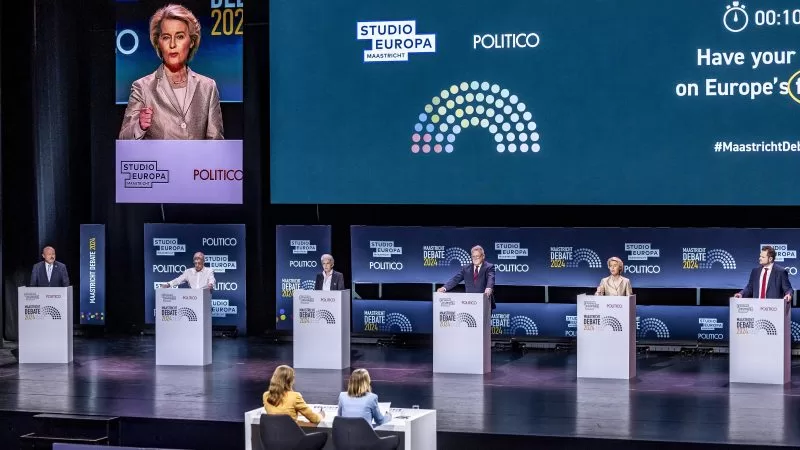In Maastricht, the stage was set for a pivotal EU presidential debate featuring incumbent Ursula von der Leyen of the European People’s Party and a diverse panel of candidates. Nicolas Schmit, representing the Party of European Socialists, focused on critiquing the normalization of far-right ideologies rather than direct confrontation. Joining them were Marie-Agnes Strack-Zimmermann from the Alliance of Liberals and Democrats for Europe Party, Bas Eickhout from the European Green Party, Anders Vistisen from the Identity and Democracy Party, Walter Baier from the Party of the European Left, Maylis Roßberg from the European Free Alliance, and Valeriu Ghilețchi from the European Christian Political Movement, each presenting their distinct visions for Europe’s future.
The President of the European Commission holds a crucial role, functioning as the head of the EU’s executive arm, responsible for implementing policies, executing the budget, and ensuring compliance with EU law. This position, informally referred to as the ‘Spitzenkandidat’, is pivotal not only for shaping EU policies but also for representing the Union on the world stage.
During the debate, candidates discussed a range of critical issues from environmental policies to foreign affairs, reflecting their visions for the future of the EU. Von der Leyen defended her tenure vigorously, particularly against accusations from her rivals about her handling of economic and environmental issues. She criticized what she perceived as disruptive influences within the EU, particularly those representing or sympathetic to external adversarial powers like Russia.
The debate also touched upon the Spitzenkandidat system itself, with some arguing that it lacked engagement and failed to connect with the broader European electorate. Candidates from various political spectrums debated the future of EU democracy, the Union’s environmental agenda, particularly the Green Deal, and the external policies concerning neighboring conflicts and international relations.
Bas Eickhout, representing the Greens, emerged as a vocal critic, challenging von der Leyen on her alliances and policies. The debate was not only a contest of policies but also of values, as von der Leyen and others outlined their stances against the far-right’s influence in European politics, stressing the importance of maintaining EU integrity against divisive forces.
This debate sets the stage for upcoming elections and offers a glimpse into the potential future direction of the EU. It reflects the ongoing struggles within the Union to balance national interests with a cohesive European vision, and the complex interplay of internal and external pressures shaping its path forward.
Source link
